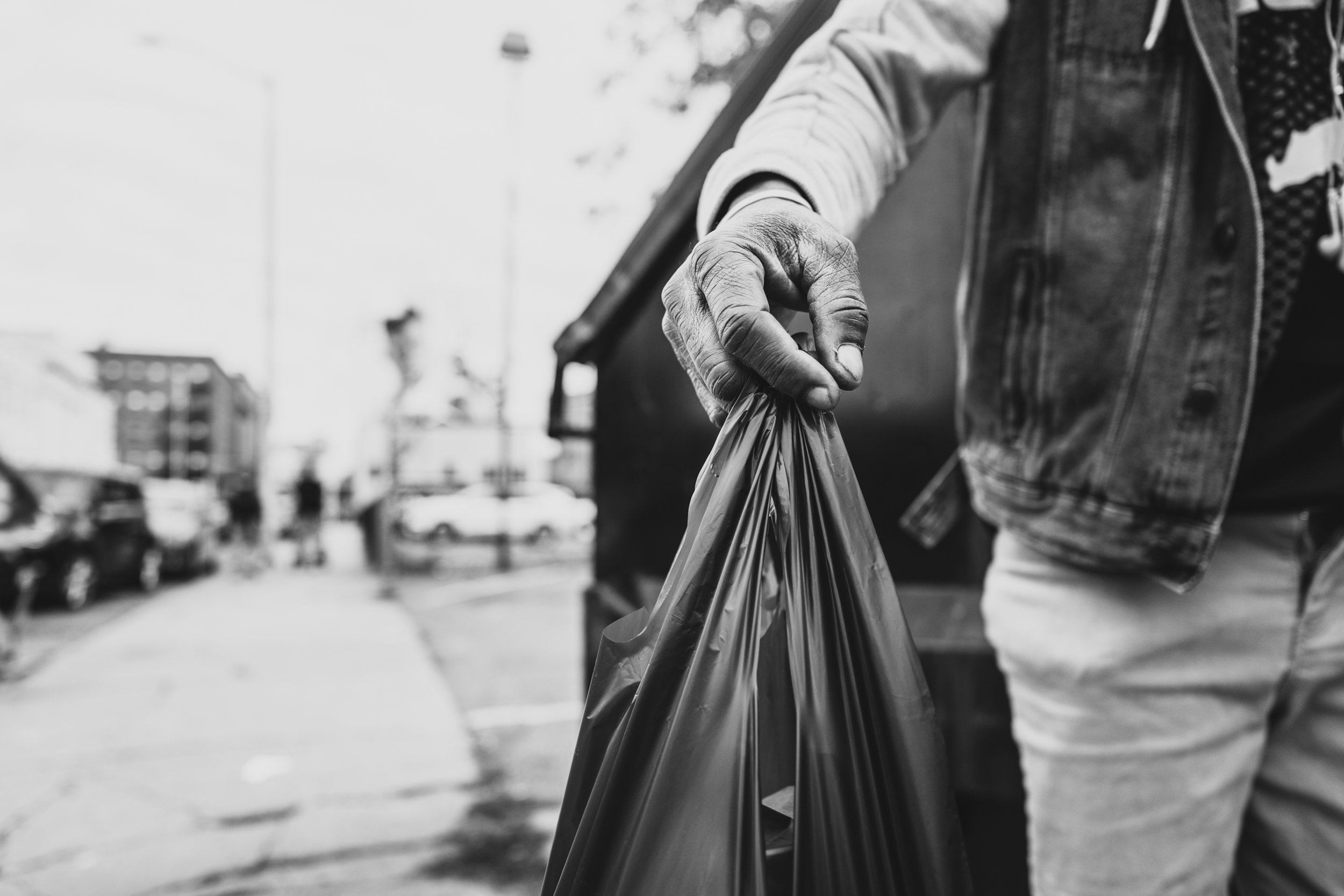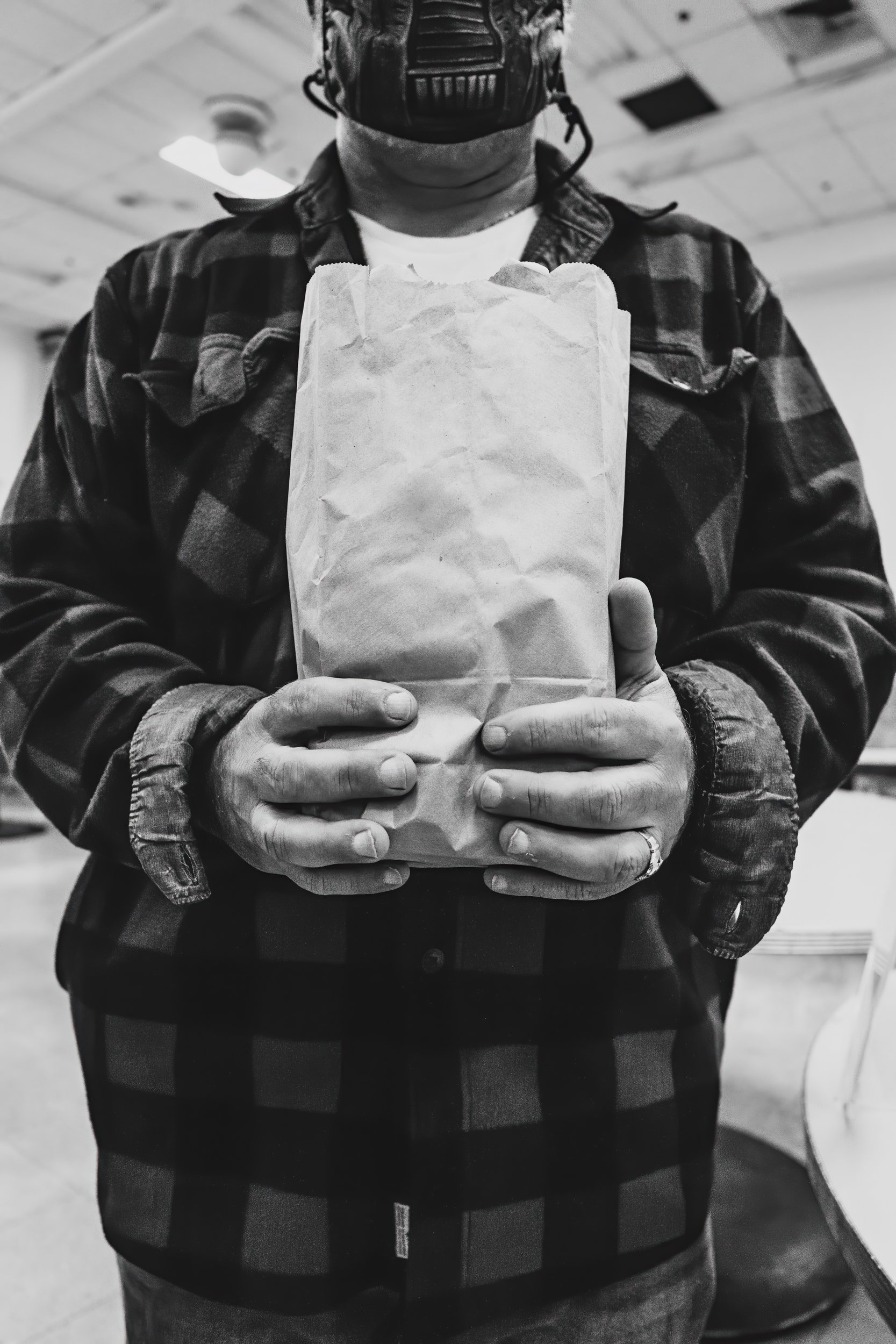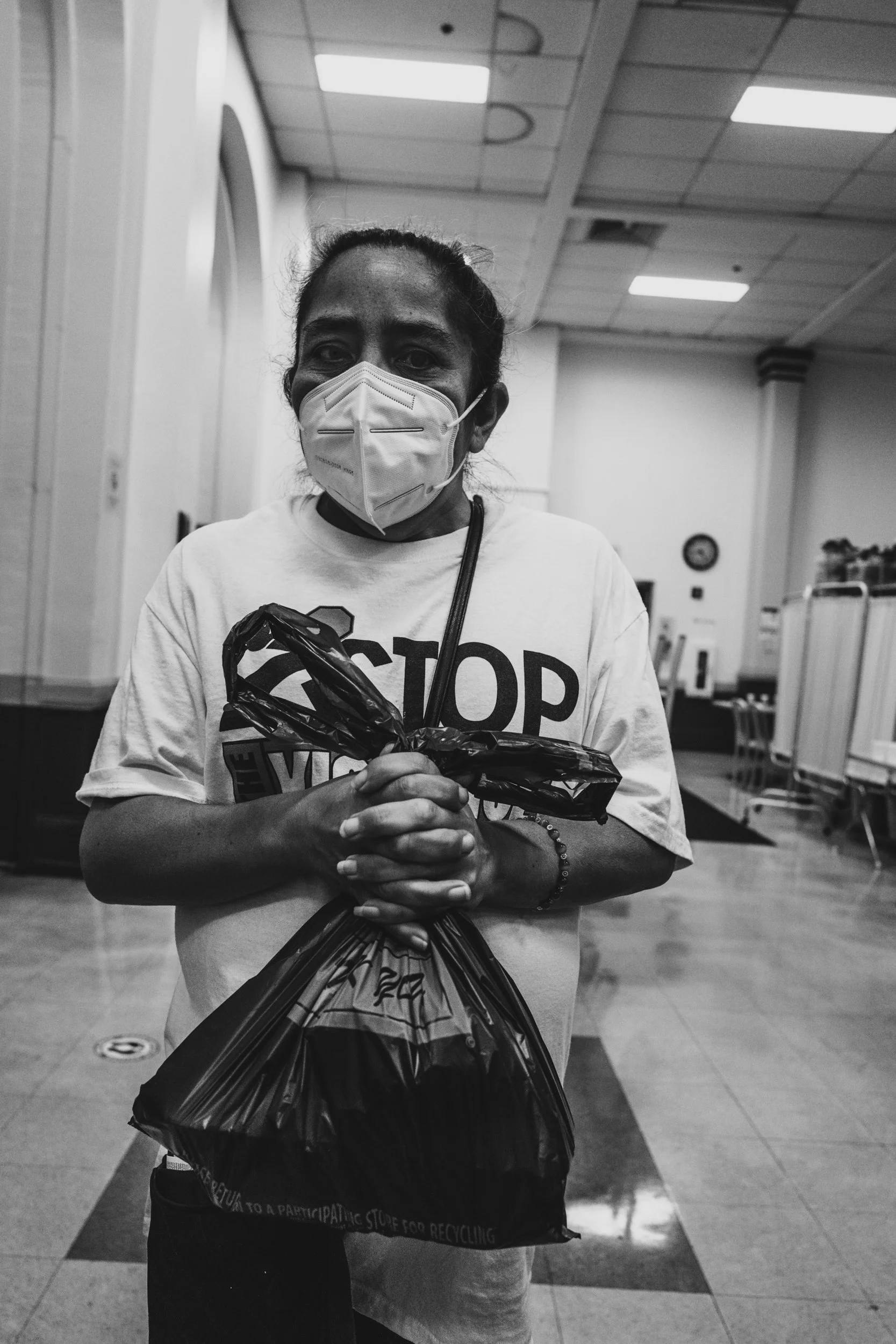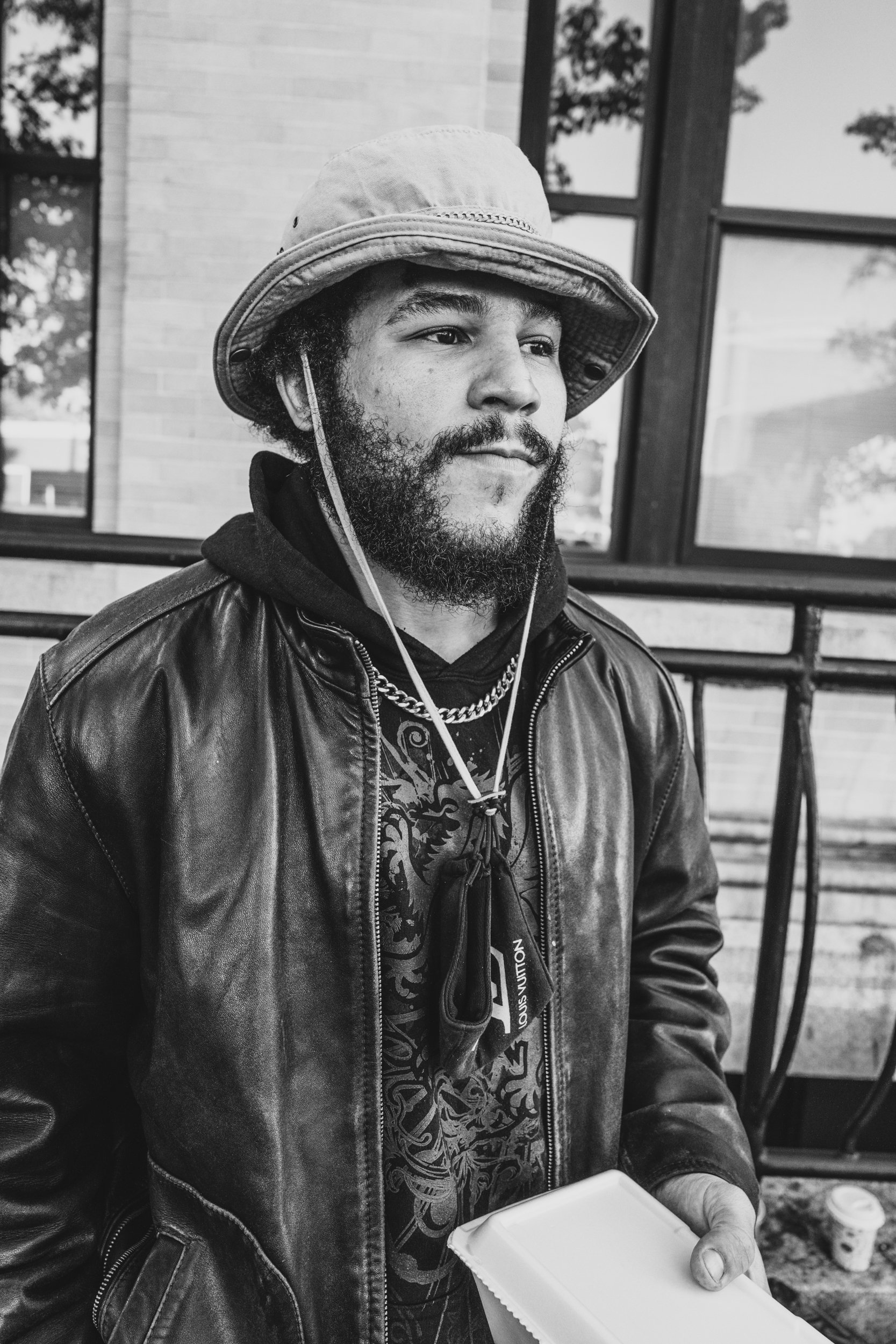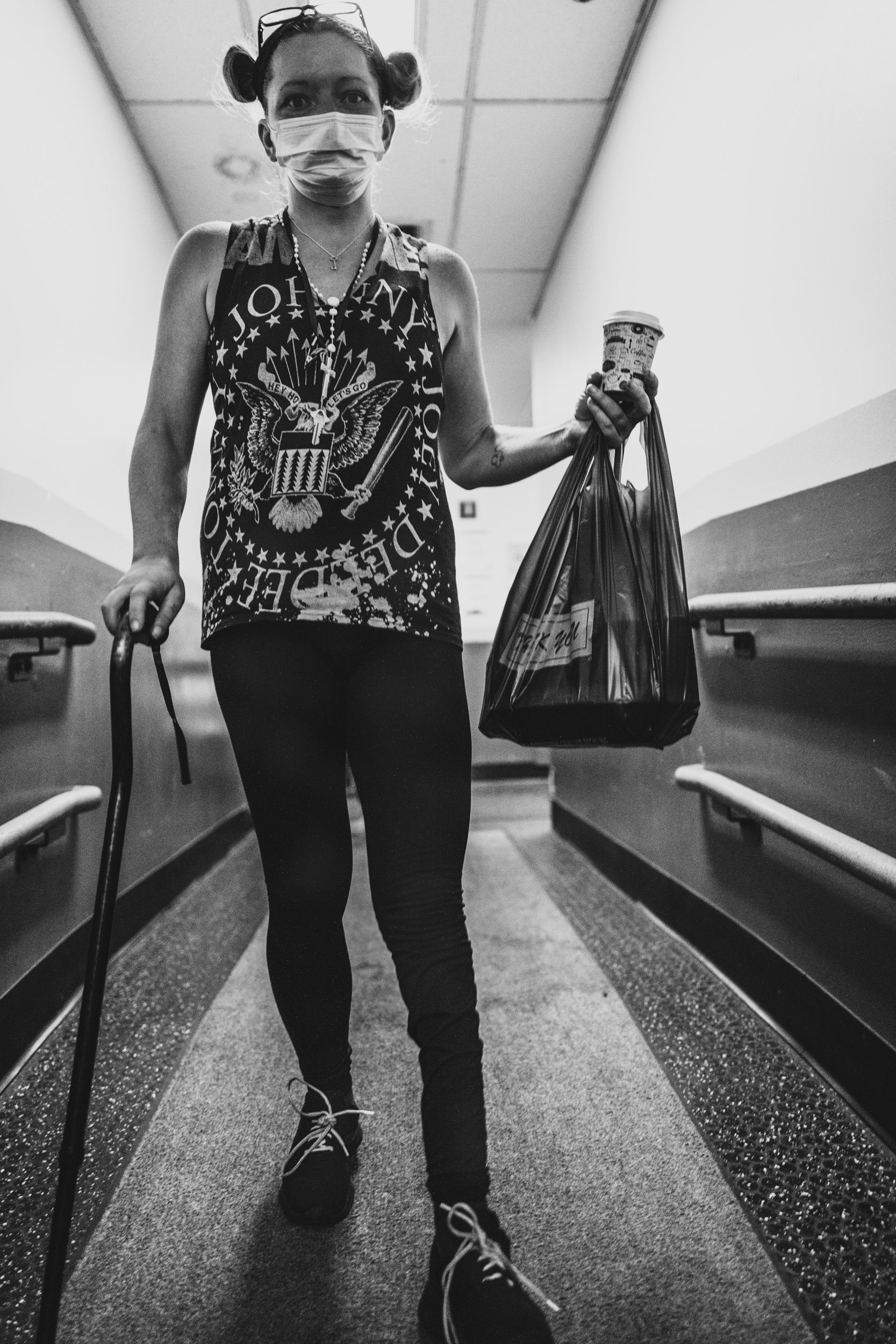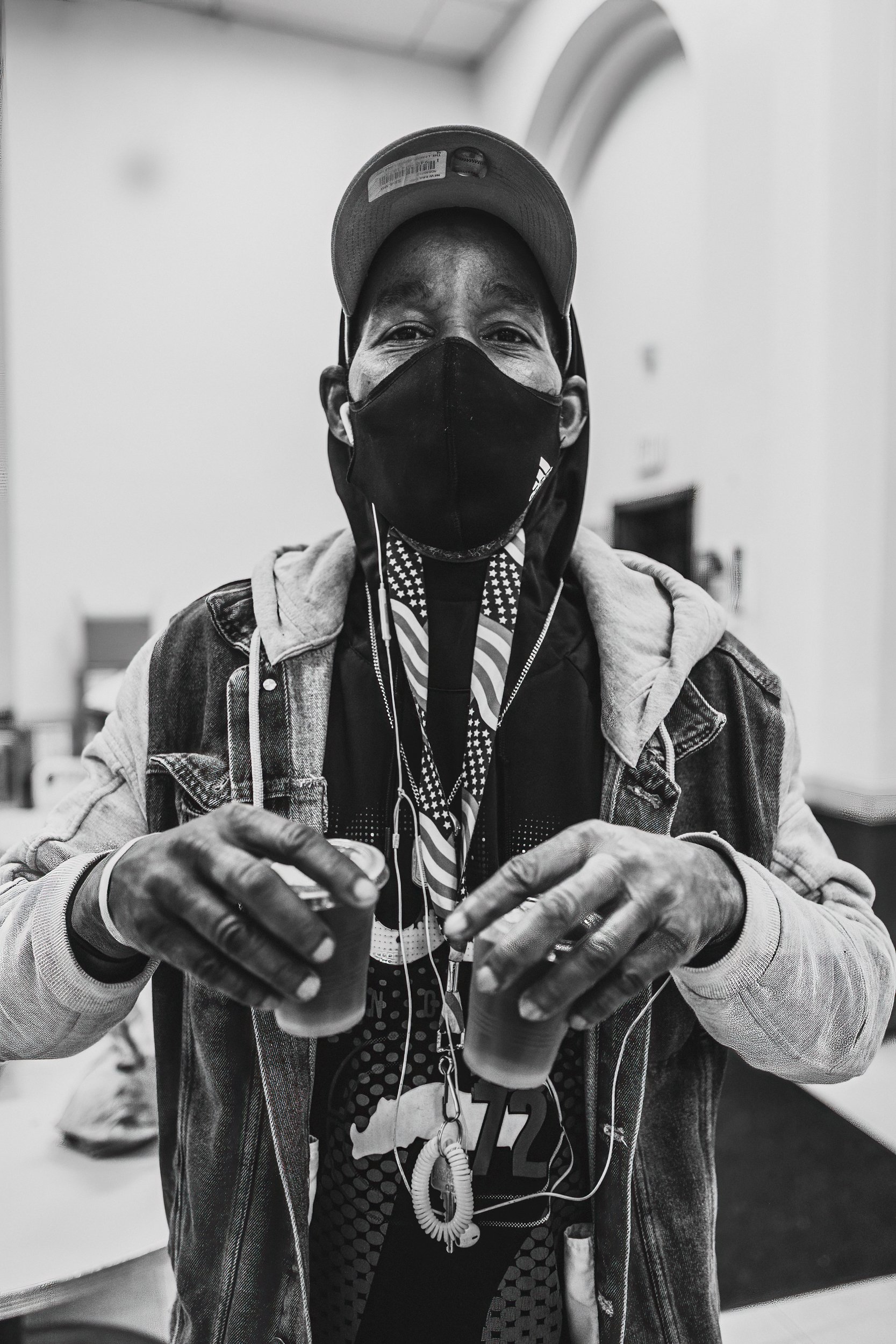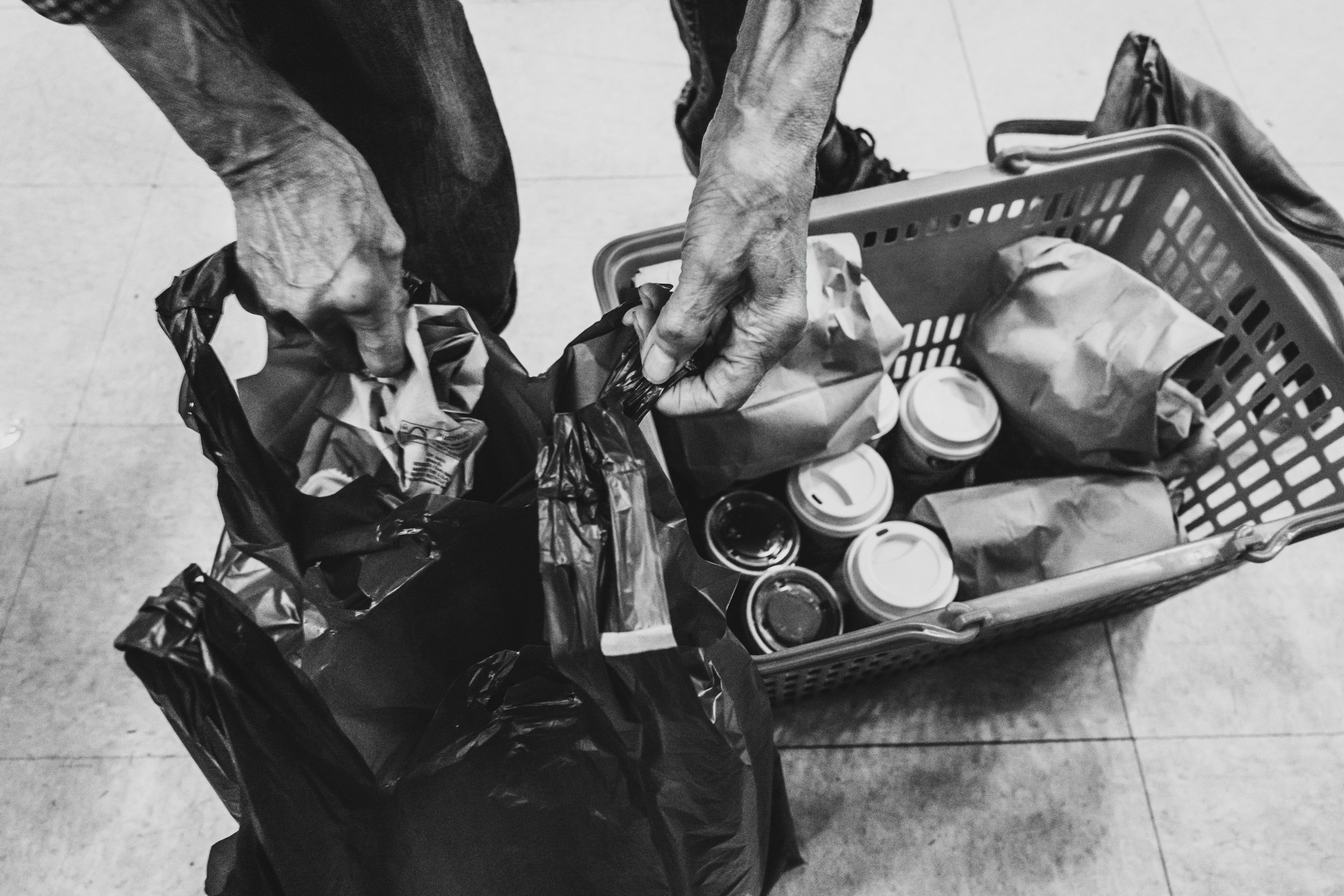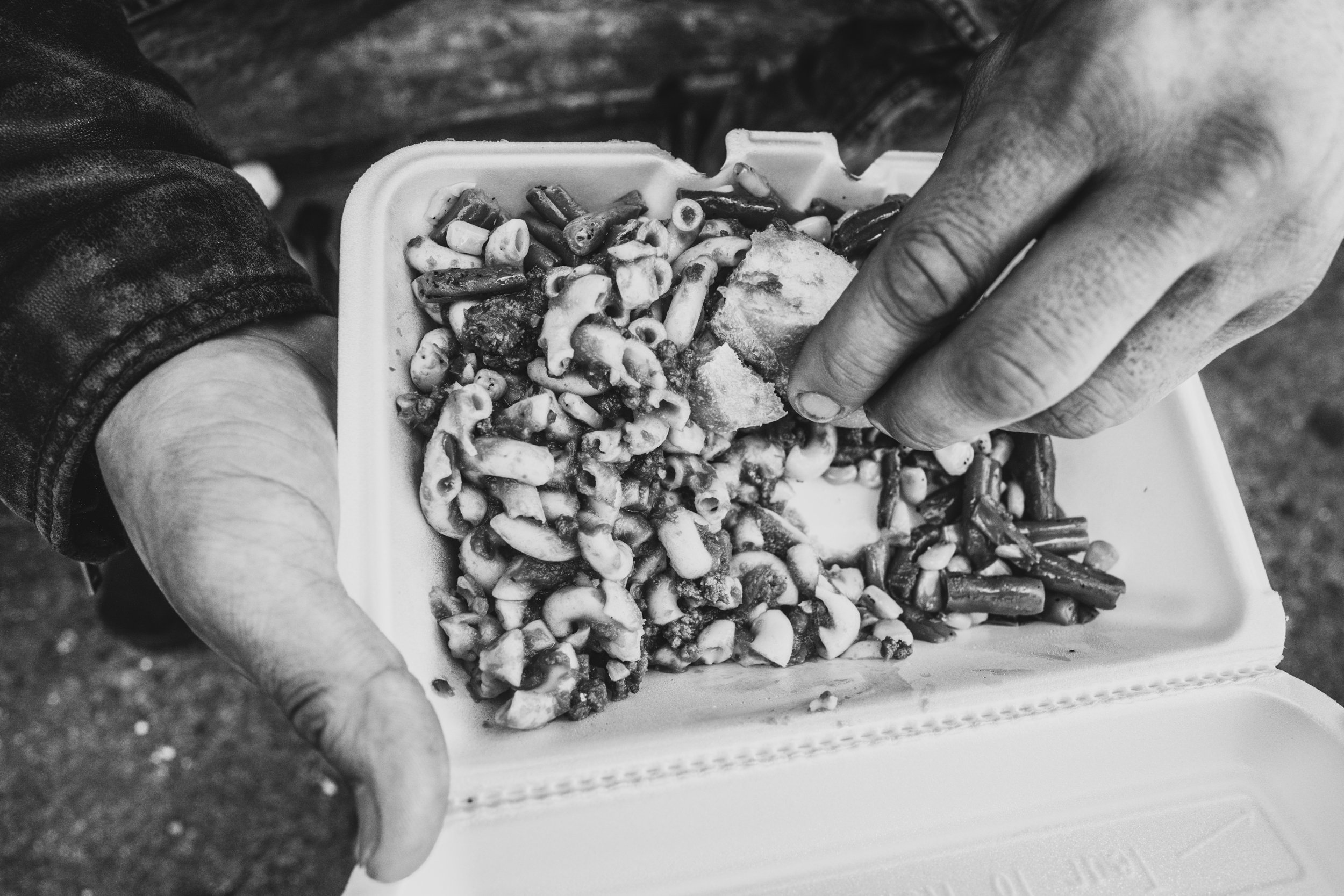Feeding Massachusetts with Hot Meals and Fellowship
Photos by Ken Rivard
Think for a moment what it would be like if you didn’t have a refrigerator to keep your food cold, or a stove to cook on. What if you didn’t have a can opener or other tools to prepare your food? Or if your teeth hurt so much you couldn’t eat a fresh carrot or apple because you couldn’t afford to go to the dentist?
Perhaps you have enough money to pay the rent and utilities but not much left over for food—and you’re just as hungry for community and conversation?
Though we might associate soup kitchens with breadlines and the Great Depression, they still exist in 21st-century America. People and organizations all over the Greater Boston and Worcester areas are feeding neighbors who need a meal and a human connection—for any reason—funded by local businesses and private donors, primarily powered by volunteers. During COVID, some have kept on serving as usual, while others have been forced to adapt to new circumstances.
For this story, the last in my Feeding Massachusetts series, I interviewed people in Boston, Lawrence, Lynn and Worcester. Each represents an organization with a similar mission: to feed the hungry while providing warmth and community in a dignified environment. No questions asked, ever.
ST. JOHN’S FOOD FOR THE POOR PROGRAM AT ST. FRANCIS XAVIER CENTER, WORCESTER
On a chilly early-October morning, I joined a small group of volunteers to cook and serve breakfast for about 275 people at the St. Francis Xavier Center soup kitchen in Worcester. We worked quickly, filling trays with breakfast sandwiches, French toast, fruit salad, hot chicken sandwiches and hot dogs, cookies, strawberry shortcake and turkey sandwiches. Guests chose what they wanted from the table, set up buffet-style, before eating at one of the dining tables, alone or with others.
“I believe in letting people pick their own food,” says Billy Riley, who has been directing the St. Francis Xavier Center soup kitchen and food pantry at St. John’s Church since it opened in June 2013.
Every morning except Sunday, five to 10 volunteers work together to feed 250 to 350 people: cooking, mixing, baking, slicing tomatoes, cutting strawberries, assembling sandwiches, wrapping plates to go, dishwashing or otherwise pitching in where needed. “The volunteers work as a team,” Riley says.
The crowd they serve is diverse and includes the elderly, disabled, homeless men and women, families and people who have no money for food. “It might be the only meal that they eat all day,” he says, so while breakfast is offered from 7am to 10am, there is always enough food for guests to take multiple sandwiches and other food away with them. “I let people take what they want. A lot of people need food to get them through the day.”
The soup kitchen has never closed its doors during the pandemic. “If we weren’t open,” Riley says, “they wouldn’t eat.”
FRIDAY NIGHT SUPPER PROGRAM
“Anyone can walk in and get a meal from us,” says Cameron Gray, former kitchen manager and now program director for the Friday Night Supper Program at Arlington Street Church in Boston. “Whether our guests are homeless, down on their luck or just want company, we don’t ask.”
Gray is one of a part-time staff of three who works with volunteers to prepare and serve a hot meal restaurant style to the people who walk in on Friday nights from 5 to 7pm. Whether the entree is beef stew or chicken alfredo, the three-course meal always includes soup and bread, vegetables, a starch (potatoes, rice, or pasta) and a dessert plus coffee, tea, water, juice or milk. There’s always a vegetarian option and any leftover food is offered to go.
With a mission to provide a warm nutritious meal to anyone in need in a safe and dignified environment every Friday night, the secular program was started in 1984 by the Arlington Street Church, a Unitarian Universalist congregation, and Dignity Boston, a community of LGBTQI Catholics. Since then, they haven’t missed a Friday.
Before COVID, guests averaged between 120 and 150 people every Friday night. In March 2020, the program stopped dine-in meals and began offering hot meals to go. The dining room reopened in June 2021 with seating limited to 36 on a first-come first-served basis. Anyone can get a to-go bag if they can’t wait for someone to give up a seat.
Weekly guests now total about 60, including takeout. So the program donates 60 additional meals a week to Rescuing Leftover Cuisine, which then distributes them to local shelters. “It’s a way for us to spread the love while we have extra resources,” Gray says.
BREAD & ROSES
“Feeding people is as important to us as companionship,” says Jessica Perrault-Gordon, who oversees Bread & Roses, a soup and community kitchen in Lawrence.
Named for the Lawrence textile mill strike of 1912 and the song “Bread and Roses,” where bread is the sustenance and roses are the dignity, “Our organization feeds people—their bodies and their spirit,” says Jessie Strauss, development and communications associate. People don’t have to endure their hardship alone, she adds. “We invite people in to listen and to talk.”
Bread & Roses fed 120 people with dinner five nights a week until COVID forced them to shut down their hot meal program. In July, they began offering hot meals again, this time in a paper bag. These grab-and-go meals are cooked and created by staff and by “Meal Heroes,” networks of people, like church groups and community groups, that “adopt a night” on a weekly or monthly basis. Leftover meals are brought in biodegradable packing to homeless encampments in Lawrence. In September, they were handing out 65 bags a night.
“We serve anyone regardless of their circumstance,” says Perrault-Gordon. “Anyone can come here. If we have it, we’ll give it to you.”
Housed in an old schoolhouse and founded by a group of nuns in 1980, the organization also provides food to households on an emergency basis and to seniors and veterans regularly. The organization’s staff and volunteers create and deliver 200 meals each week to over 25 local agencies in Lawrence and the Greater Merrimack Valley. Bread & Roses also partners with other organizations to find homes for any donated food. “We’ll make sure it’s not wasted,” Perrault-Gordon says.
Although their primary goal is feeding people, Bread & Roses provides health services, warm clothing and other basic life essentials, as well as offering case management for those who need help with food, utility, housing employment, legal support, addiction recovery and mental health resources.
Their plan is to open the dining room to in-person meals in January 2022. “We want to open back up to be the same pillar in the community that we were [before the pandemic],” Perrault-Gordon says.
MY BROTHER’S TABLE
The need for a soup kitchen in Lynn was evident to Nancy Ryan as she watched from her office window while people ate food, sometimes out of a can, in the cemetery across the street from the food pantry. Ryan met others with a similar vision of providing a place where people could eat a hot meal safe from inclement weather. Together they created My Brother’s Table. Since 1982, the soup kitchen has served over 5,265,090 hot, free meals as part of its mission “to nourish our community every day through hospitality, free meals and unconditional love.” The organization relies on volunteers and a small staff to provide food and hospitality to its guests, 365 days a year.
“A lot of people in Lynn may have a place to live but not a place to cook,” says Dianne Kuzia Hills, executive director of My Brother’s Table. “The free food allows people to use their money for other things,” she says.
Although in-person dining is on hold for now, My Brother’s Table continues to provide hot meals in to-go containers and has provided 1.3 million meals since the pandemic began, including 128,000 meals during the month of February 2021 alone. The dining room is open from noon to 6pm Monday through Friday and 2pm–4:30pm on the weekends. People are welcome to come in as many times as they like. “People need food every day,” Hills says.
My Brother’s Table delivers meals as well, including to homebound families, patients in the Lynn Recuperative Care Center, seniors at the Lynn Council on Aging and those held at the Lynn Police Department Lock-up.
This fall, My Brother’s Table will be implementing WHIRL (Wicked Healthy in Real Life), a program to take fresh vegetables and fruits and make them palatable, adding flaxseed meal and soy protein for extra nutrition and creating smoothies that will be delivered via an icicle tricycle (a tricycle outfitted with a cooler box, like for ice cream sales) to people in the neighborhood, in respite care and at the Table. The smoothies will be prepared and distributed by young adults in the Haven Project.
Like the other organizations in this story, My Brother’s Table relies on private funding. They don’t seek or accept any government funding which allows them to welcome anyone and everyone, no questions asked. Hills says, “If you were going to have someone over for dinner, would you ask them how much money they have?”
(Note: Our thanks to the patrons of My Brother’s Table for allowing us to photograph them for this story.)
THE WISHDISH PROJECT
“If you had access to a stove, what do you wish you could cook?” asks Jeanie Gruber, aka “Miss Jeanie,” of the people who gather on Wednesdays at common cathedral’s day project hosted at Emmanuel Episcopal Church in Boston. After visiting with a particular individual, she creates that guest’s “WISHDISH” the following week with the ingredients or details they’ve recalled from memories and brings it to the center for all to eat. She makes enough to feed 60, and the person who suggested the meal becomes the honored guest of the week. Gruber calls her project, which began in New Orleans, The WISHDISH Project.
A therapist-turned-caterer, Gruber is originally from Louisiana and now lives in Newton. The name of her catering business, Miss Jeanies Catering, is a reference to her southern roots. While visiting New Orleans before COVID, Gruber began volunteering and washing dishes for Grace at the Greenlight, an organization that provides breakfast for homeless people 365 days a year. She began talking to the guests who came for breakfast and asking them about their favorite foods.
Back in Newton after the outbreak of the pandemic, she learned that the husband of one of her catering staff worked at common cathedral in Boston. Soon she was volunteering there and asking their guests the same questions she’d asked in New Orleans. “If you had a stove, what do you wish you could cook?”
She’s cooked at least 40 meals since the project began, including a dry rub for ribs for Mr. Kirt based on “the intuitive recollection of the tastes he craved,” Russian lamb plov for Miss Alice and corned beef Reuben for Mr. John. When a man told her that finding food at shelters is difficult for vegans, she began making a vegan alternative each week as well, often with vegetables donated by Margie Perse, a gardener in Weston, in addition to vegetables Gruber gathers at Applefield Farm in Stow.
With hopes to expand The WISHDISH Project to other homeless communities and incorporate more volunteers, Gruber and her husband recently bought an old farmhouse in Stow. The farmhouse will house a nonprofit educational center and be a home base for The WISHDISH Project, where volunteers can prepare food to bring to people without homes. She plans to call it Wonder Root Farm.
This story appeared in the Winter 2022 issue.

